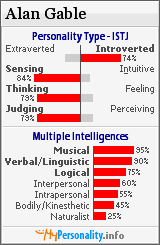I subscribe to HBO. Don't judge me. I like movies and Home Box Office is, aside from the "Starz" Movie Channels which stink worse than the rancid milk we used to allegedly put in an undisclosed chicken coop for the XEA pledges on rough night (the statute of limitations on hazing has run out), the cleanest of the movie channels. I'm also one of the few who still actually enjoy the sport of boxing and Jermain Taylor (native to Maumelle, AR) contracts with HBO to cover all of his fights. Anyway, the other night, Krisi and I watched a documentary called "Coma" on one of the 5 HBO channels that come with the package. It followed a series of patients recovering in a New Jersey rehab facility who had been victims of slightly different "traumatic brain injuries". The film followed the patients through the months of recovery and ended with half the patients making promising progress while the other half were more permanently affected by their injuries.
Things you have to understand:
1. I work with numbers all stinking day so my job, by nature, is boring. Don't misunderstand me, I enjoy my work but it is by no means exciting.
2. Krisi works as the primary speech pathologist on the rehab floor at Arkansas Children's Hospital. She helps take patients with these kinds of brain injuries and therapeutically leads them and their families down the long road of recovery. She has a front row seat for the way the human brain, with a little help, repairs itself.
3. She is very, very, very good at it. I don't say that because she is my wife and she'll probably read this at some point, I say it because it is the truth.
By the end of the documentary, I was emotionally drained (yeah, I cried a little - it happens). The thing that got to me was each of the families' reactions to the injuries of their loved ones.(Part of Krisi's job is to educate the patients' families about the realities of their injuries and how to cope with them so she is able to unpack some really really deep emotional issues for people - This rehab center in the documentary didn't seem to have any staff members willing to help with the emotional stress of the families) The reactions were typical of people everywhere. One family snapped into action. They were helping and involved and always going, going, going. When tragedy hits, some people bury themselves in some sort of work and make themselves too busy to deal. Another family turned on the doctors and medical staff as if it were the medical professionals' fault that their son was injured. They, like alot of us, reacted to the situation with anger and bitterness. I've been there. It's a tough place to be. Yet another family had a courageous reaction. They gathered the injured one's friends and extended family and they raised money and they organized fundraisers and foundations and they helped others in the same situation.
But one family dealt with their grief in a unique way. This particular patient was in what they called a "permanent vegetative state" from which doctors say there is no return. This family gathered together and they just sat together. And they cried. And they wept. And they asked each other why things like that happen. And they just sat still in their pain.
They sat still and allowed the harsh reality of the circumstances to hit them with all of its force.
I've thought about it for a few days and I think that's what we're supposed to do. In one of Rob Bell's sermons, he talks about Jesus standing at the tomb of Lazarus and doing this same thing. He let the gravity of the situation hit him and it caused him to weep. I think we're supposed to do the same thing with other situations as well. The other night, we celebrated the 4th with our life group. Watching the kids across the street shoot fireworks up in the air, I had a chance to sit with my friends and soak in community. Whether it is peaceful joy or circumstances that cause some pretty deep despair, this is how we're supposed to grow...
skip to main |
skip to sidebar

About Me

Facebook Badge
Friends, Acquaintances, Folks of Interest
- Bills (Deborah and Pat)
- Bills (Jenni and Nathan)
- Bittles (Julie and Matthew)
- Bittles (Kelly and Josh)
- Blands
- Breedings
- Bunkhouse
- Carlin Brooks
- Crows
- Czech 'em out
- Dahls
- Divinos
- Dyniewskis
- Felker
- Gunselmans
- Helms (Houston Cuz)
- Keims
- Keith Brenton
- Kristen Chapman
- Lacey Mauk
- McFaddins
- McKinzies
- Samwise
- Todd Ramsey
- Trey Morgan


4 comments:
I wonder if all this could fit into believing that everything happens for a reason and in the end, it's just a matter of what we choose to do with the circumstances in how it affects our lives.
I saw that documentary, too. I found it surprisingly moving as well. It was odd because I love watching shows that deal with brain issues, but I rarely find them anything more than intellectually stimulating. It was a surprise, but I was glad to have seen it.
Jenny Smith (remember her?) is working as a physical therapist in downtown Atlanta with the same kind of patients. This injury has hit close to home (in Tullahoma) if you haven't heard the news. I commend those that work with the families that deal with this type of injury.
Alan, that was great. thanks for that.
Post a Comment